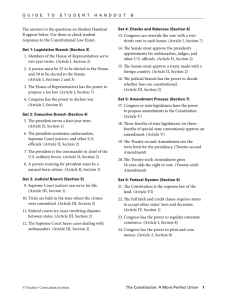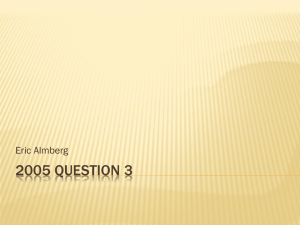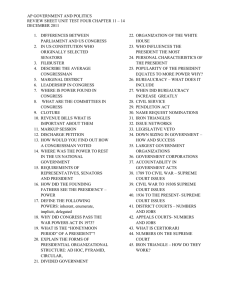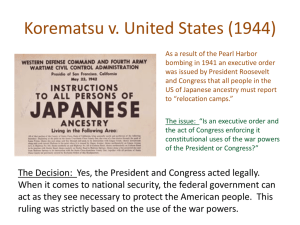Uncle Sam Might Want You
advertisement
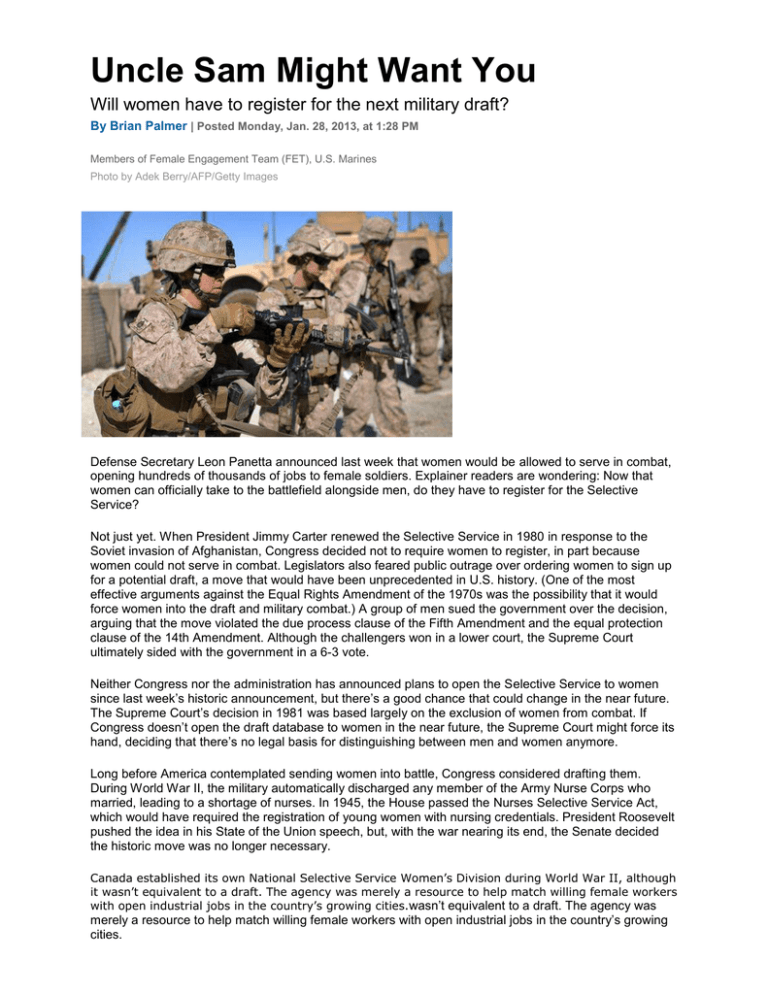
Uncle Sam Might Want You Will women have to register for the next military draft? By Brian Palmer | Posted Monday, Jan. 28, 2013, at 1:28 PM Members of Female Engagement Team (FET), U.S. Marines Photo by Adek Berry/AFP/Getty Images Defense Secretary Leon Panetta announced last week that women would be allowed to serve in combat, opening hundreds of thousands of jobs to female soldiers. Explainer readers are wondering: Now that women can officially take to the battlefield alongside men, do they have to register for the Selective Service? Not just yet. When President Jimmy Carter renewed the Selective Service in 1980 in response to the Soviet invasion of Afghanistan, Congress decided not to require women to register, in part because women could not serve in combat. Legislators also feared public outrage over ordering women to sign up for a potential draft, a move that would have been unprecedented in U.S. history. (One of the most effective arguments against the Equal Rights Amendment of the 1970s was the possibility that it would force women into the draft and military combat.) A group of men sued the government over the decision, arguing that the move violated the due process clause of the Fifth Amendment and the equal protection clause of the 14th Amendment. Although the challengers won in a lower court, the Supreme Court ultimately sided with the government in a 6-3 vote. Neither Congress nor the administration has announced plans to open the Selective Service to women since last week’s historic announcement, but there’s a good chance that could change in the near future. The Supreme Court’s decision in 1981 was based largely on the exclusion of women from combat. If Congress doesn’t open the draft database to women in the near future, the Supreme Court might force its hand, deciding that there’s no legal basis for distinguishing between men and women anymore. Long before America contemplated sending women into battle, Congress considered drafting them. During World War II, the military automatically discharged any member of the Army Nurse Corps who married, leading to a shortage of nurses. In 1945, the House passed the Nurses Selective Service Act, which would have required the registration of young women with nursing credentials. President Roosevelt pushed the idea in his State of the Union speech, but, with the war nearing its end, the Senate decided the historic move was no longer necessary. Canada established its own National Selective Service Women’s Division during World War II, although it wasn’t equivalent to a draft. The agency was merely a resource to help match willing female workers with open industrial jobs in the country’s growing cities.wasn’t equivalent to a draft. The agency was merely a resource to help match willing female workers with open industrial jobs in the country’s growing cities.
